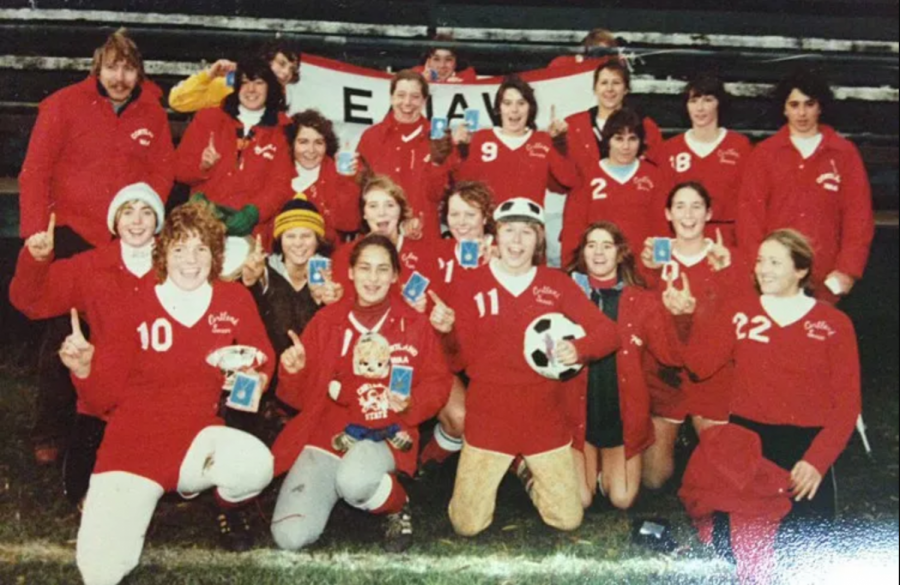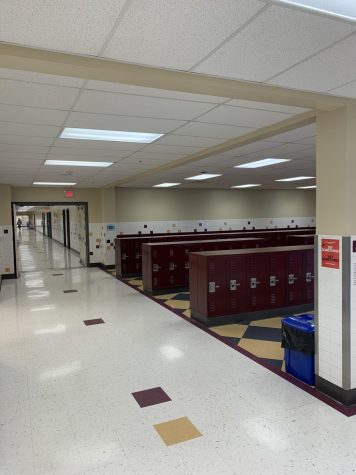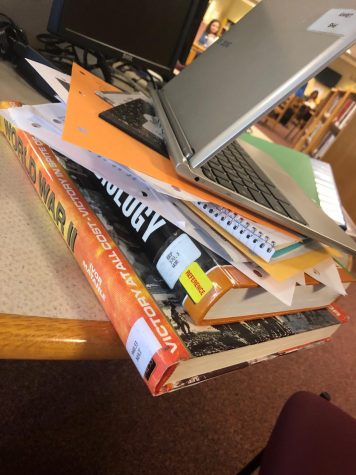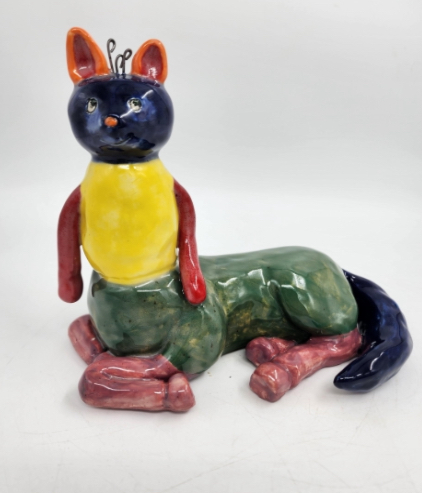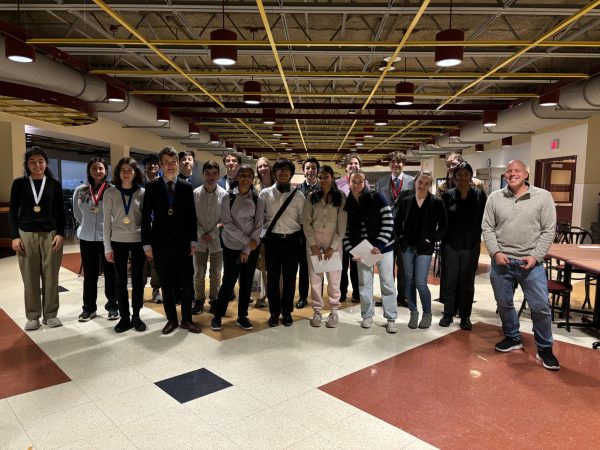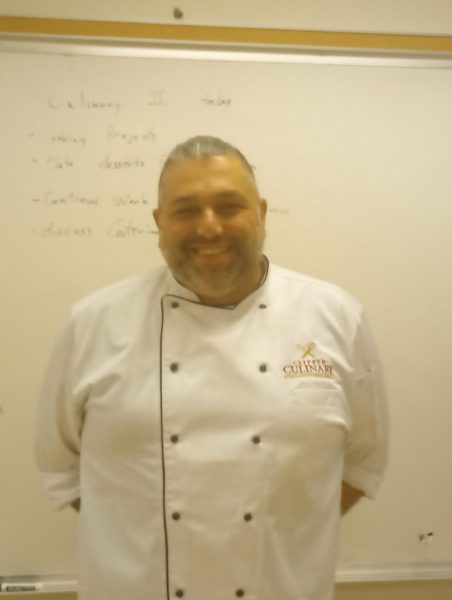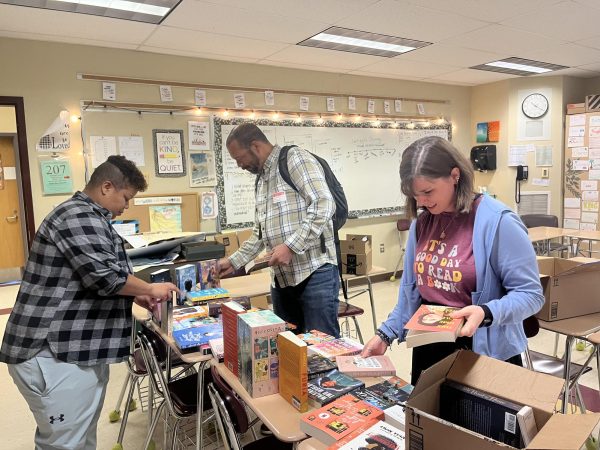PHS Girls Soccer Coach Scarano Relives 1980 Glory as Clippers Enter Playoff Season
Cydney Scarano is the dynamic Portsmouth Girls Soccer coach, who has revolutionized the program during the three years she has led it. She has led the team to competitive playoff positions each year and will do so again this fall as the girls soccer team enters their playoff season with high expectations. Portsmouth plays its last regular season on October 18 and is looking toward playoffs with a current record of 11-3-1, and a standing of 5th place. One of the many reasons that Coach Scarano has become such a powerful source of inspiration to her team is the incredible background in soccer that she possesses.
Members of the PHS soccer team have nothing but positive things to say about their coach. Senior Zoe Frizzell says, “Personally, I really like Coach Scarano. I think she’s really good at what she does, and she has a lot of experience. She really works magic with our team.”
Senior captain Katie Roys says, “I feel like the fact that our coach won the first national title is really helping our team because she has experience with winning, and our program hasn’t won a state title in the history of Portsmouth High School. I can feel it coming, as long as we can work hard and get it this year, because we’re moving up to Division I next year and we’ll be facing a whole new field of talented teams.
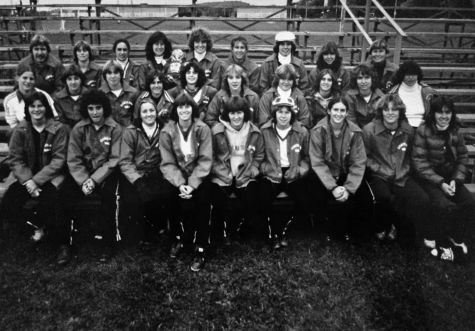
In 1980, the Cortland women finished their season with a record of 9-3, qualifying as the eighth seed in an eastern championship tournament; defeating the UConn to capture the AIAW title. An unexpected, last-minute invitation to an invitational postseason tournament was in an effort to bring together eight of the best women’s soccer teams from around the country. Cortland’s low budget and limited time meant that the team had to be cut from 25 to 16, and piled into two cramped vans on a cold and snowy drive through the Midwest to the Rocky Mountains.
According to Coach Scarano, “We laid this blueprint, this foundation for women’s soccer that was so beautiful for the sport, because it wasn’t like ‘there’s the girls game and there’s the guys game’ because we were playing the same game as the guys. It was diving headers and muddy uniforms all over the place. We were so young. It took many years, and a lot of coaching to realize — I’m still realizing — We got into a van, drove across the country and we were good. It really is something that is still developing as how profound it was.”
Once in Colorado, the Cortland women began the tournament with a win over Colorado State, going on to beat their rival Harvard 3-0 loss. They advanced to the national championship game against UCLA, and beat them 5-1 to capture the first American title of its kind. They put Cortland women’s soccer on the map and set the foundation for the game in the United States.
“I scored on a PK. I was a scorer, because I was an outside midfielder. Heather was our big-time scorer, but I was the third leading assister and scorer on our team. I hadn’t scored in any of the national tournament games up until that point. I played really well in the regional games, but when I got out to Colorado, I felt kind of flat. I don’t know if it was the altitude or something else, but scoring that PK in the final game and making the score 4-1 was a great moment. I remember them saying that we played too physical. From where we came from in upstate New York, you get more rain, more snow. We had long johns on most of our fall season in NY, and we became really used to that climate. We loved puddles. Puddles to us were open invitations to do diving headers.”

Scarano goes on to say, “For me, this documentary was more important not because we actually won the first ever national championship, or that my teammates and I were all-American. It was more because of the lessons that we share today that are almost more relevant today than they were back then. One of them is that pioneering is not easy. Our program is trying to do something that hasn’t been done. You have to lay your own blueprint, you have to figure it out, you have to establish your own culture. You have to learn the power of thinking that you’re good; self belief. Back then, we thought that we were the best, and we didn’t have social media to tell us otherwise. Every time we got the opportunity to play at a bigger stage, we had this passion and determination, and we seized the moment. We were a team of many different women from all different walks of life, that didn’t have much in common off the field, but on the field we all had this incredible love for the game. I want my players, and coaches around the country to take these lessons from this documentary.”
The U.S. women’s national team is now watched by millions, and thousands of women have the ability to play college-level women’s soccer thanks to the path paved by the Cortland team, and by PHS’s own Cydney Scarano. It has been 37 years since women’s soccer was revolutionized, and the release of a new documentary “Cortland to Colorado” celebrates the championship team and its role in the growth of women’s soccer in the United States.
“No matter how far we go, or what we do from here in our season, I think everything we went through this season was a powerful life lesson. I love that I am doing this job, because I don’t think there are very many women coaching. The coach from Pelham is the only other female coach in all of Division 2 women’s soccer. It bothers me. There should be more women coaching young women. I think it is important for female players to have a female role model; one that has had a family life, has had children, has been married. One that has what you would consider a well-balanced life and to role model that for kids, I think is really, really important. I almost feel like it’s necessary for me to be out here coaching.”
“Cortland to Colorado” documentary trailers:
Images From: http://www.tworedcortlandstatevans.com/gallery/1980


